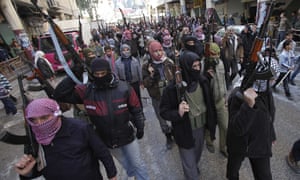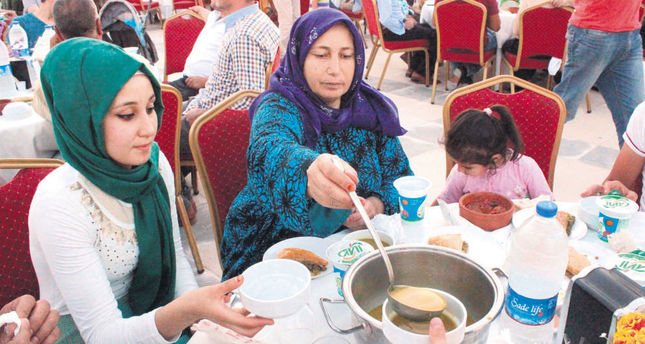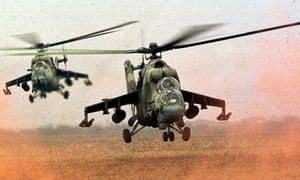
Montagne: Wow. Well, let me ask you, when we first spoke with you late last year, you were quite angry that the U.S. was paying so much, at that point, attention to ISIS. And what you said was, what about the regime? The Assad regime - more people have been killed by far by them in Syria than by ISIS. I wonder, though - it's been months now - what about ISIS? Or - are they coming into your neighborhood? Is there a threat?
Al-Batal: Most of the population here, like, do not agree with how ISIS think or act. So they don't have any place to grow any followers here. But what I am afraid is that the more you have been feeling injustice and the more you feel that you have been left alone, that you have been pushed to maybe sometime even make a deal with the devil to get out of here. So we manage to push back those ridicules, but the more the situation get bad, no one knows what going to happen.
Montagne: How are you getting news, and how much news are you getting about what is happening outside?
Al-Batal: Most of the people get the news. They have this two hours a day of electricity, and they watch television. But they don't watch it with that much care anymore. They are more interested in the local news because they say that the news here, like, it has been the same for, like, three years. The only thing that's changed is the number of people who die. Nothing major have change. There's always an airstrike. There's always someone dying. Even this morning, we have two airstrikes. So people are walking the street. They hear the plane coming, so they just look up, wait for the bomb to fall, and after that they keep walking normally like nothing had happened. That's one side of human nature - that you can get used to anything. I told you my friend of mine lost all of his family, and he didn't even cry. He was, like, the meaning of death have been changed. And he was like, maybe they are relieved now or out of the siege in the one way that no one can stop them - up to the sky.










